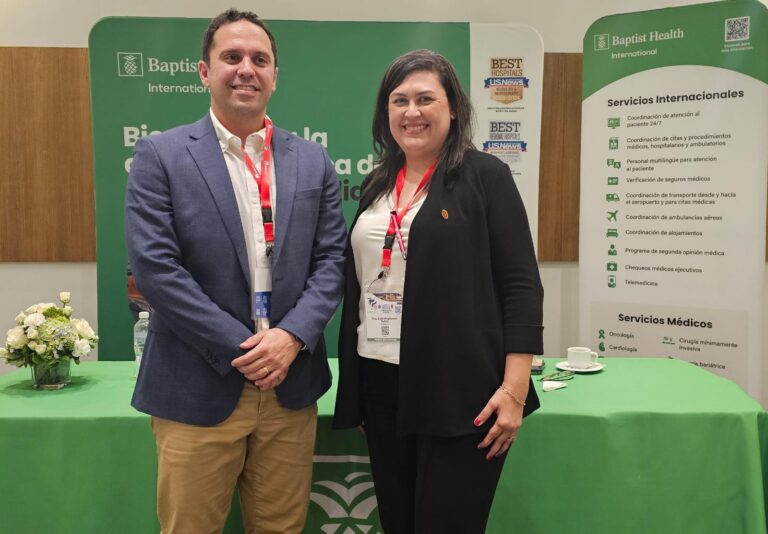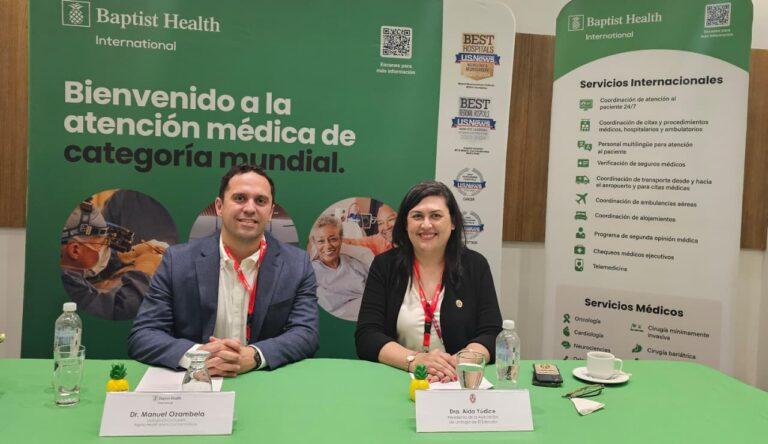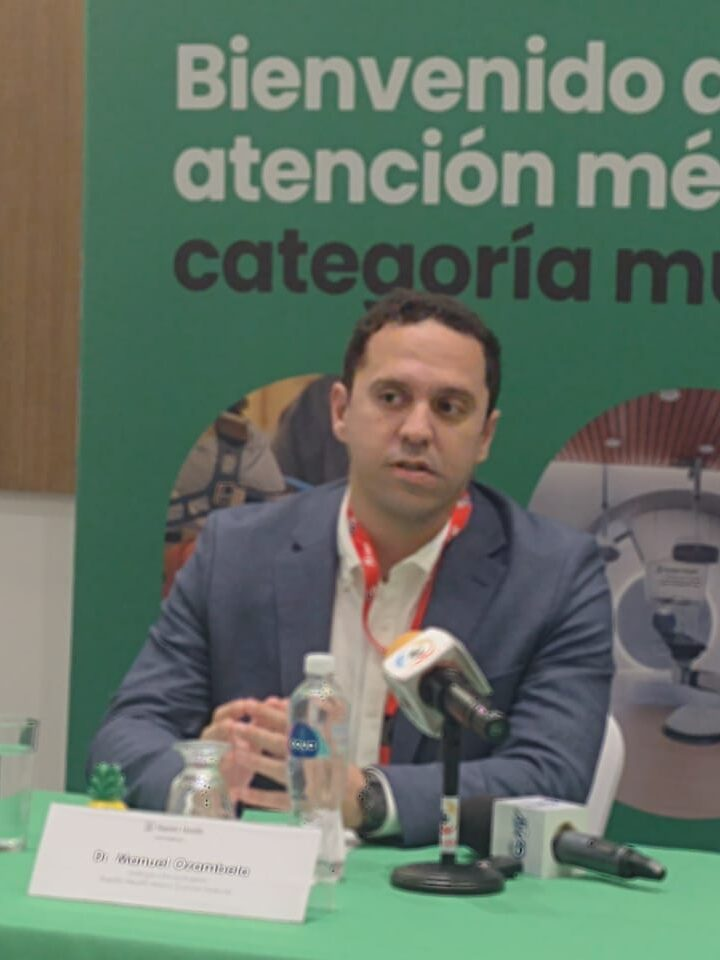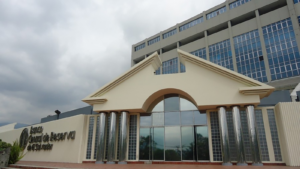Prostate cancer is considered the most common cancer in men. It ranks third in the world in terms of death. One in every eight men is diagnosed with prostate cancer.

Age is one of the main risks for men developing the disease, followed by family history; for example, if a father, brother, or uncle has had prostate cancer. The average age at which the disease occurs is between 60 and 65.
According to Dr. Manuel Ozambela Jr., urologic oncologist at Baptist Health Miami Cancer Institute, other genetic conditions can also cause it, such as a BRCA gene mutation. This mutation is generally associated with women at higher risk for breast, ovarian, or uterine cancer. However, if a man also has this genetic mutation, he can develop prostate cancer, sometimes in a more aggressive form.
The specialist has been invited as a keynote speaker at the V Congreso de la Asociación Urológica de Centroamérica y El Caribe (AUCA), organized by the Asociación de Urología de El Salvador, to discuss the latest advances in the treatment of urological cancers in men.

During the press conference, the president of the Asociación de Urología de El Salvador, Dr. Aída Yúdice, highlighted the valuable contribution Baptist Health International makes in the country to disseminate and share innovative medical knowledge with the national medical community. She also acknowledged the importance of ongoing medical development and the valuable contribution Dr. Ozambela will provide during the congress, which will take place from august 27 to 30.
Paying special attention to whether women in the family are prone to cancer of their female organs or pancreas is vital to detect whether the man also inherits a BRCA gene mutation. Therefore, Dr. Ozambela encourages people to undergo appropriate screening, as this can be a strong indicator of a man’s risk for prostate cancer.
It is recommended that the PSA (prostate-specific antigen) blood test be performed to detect the disease starting at age 45. If there is a risk of familial genes, it is preferable to take the test from the age of 40.
According to Dr. Ozambela, prevention plays a fundamental role, a good diet, for example. “Many patients ask me, ‘So, what can I eat?’ And I tell them, if it comes from the earth or from an animal, it’s fine. If it comes from a factory with chemicals, maybe it’s not good.
And it is also important to try to be active and avoid smoking and other things like that. For example, we regularly associate tobacco with lung cancer, but it can also promote the development of bladder cancer. And in men with prostate cancer, those who smoke have a worse prognosis, meaning they don’t recover as often,” the specialist explains.
Dr. Ozambela explains that the treatment for prostate cancer depends on the form of the cancer in the patient.
«For localized cancers—that is, those that remain within the prostate gland and have not spread to other parts of the body—the usual options are surgery, which involves removing the prostate (prostatectomy), or radiation therapy directed directly at the gland.
However, in cases of localized and focal cancer, there are also less invasive alternatives, such as focal ablation treatments. “These allow treatment of only the area affected by the tumor, without having to operate on the entire prostate”, the specialist said.
This innovative technique uses different energies. Some use heat, others cold, or electricity; however, the desired result is the same: to identify where the cancer is in the prostate and use a specific energy to ablate that area and destroy the cancer while preserving the natural, normal tissues of the prostate and the man.”
Dr. Ozambela mentions that this methodology has yielded good results in men with milder or intermediate-grade cancer, as radiation or surgical treatment can often be very aggressive. For these men, focal ablation techniques are a good option.

“These techniques are also beneficial for patients who have already received radiation therapy to the prostate and experience a recurrence of their cancer. That is, those who, after having been treated with radiation and remaining disease-free for five years, face the return of the prostate tumor. In these cases, it is very difficult to repeat radiation therapy, as the tissues have a limit to their capacity to tolerate this type of treatment”.
If the cancer has spread to other organs of the body, such as the lymph nodes, bones, among others, the treatment to follow is chemotherapy and hormone-blocking medications to block the effect of testosterone on the cancer, because this hormone, present in men, is the main fuel of the disease.
Above all, Dr. Ozambela emphasizes disease prevention. He recommends that men not ignore abnormal symptoms in their body and seek immediate medical attention, rather than waiting until the disease has progressed.
“If you have any new symptoms, or something that doesn’t seem right, talk to your doctor. “The other thing is that men also tend to show up at the clinic when the problem is a little more advanced. Because they wait until they have a lot of symptoms. Recognizing that, that is what I would advise men”, the expert said.







